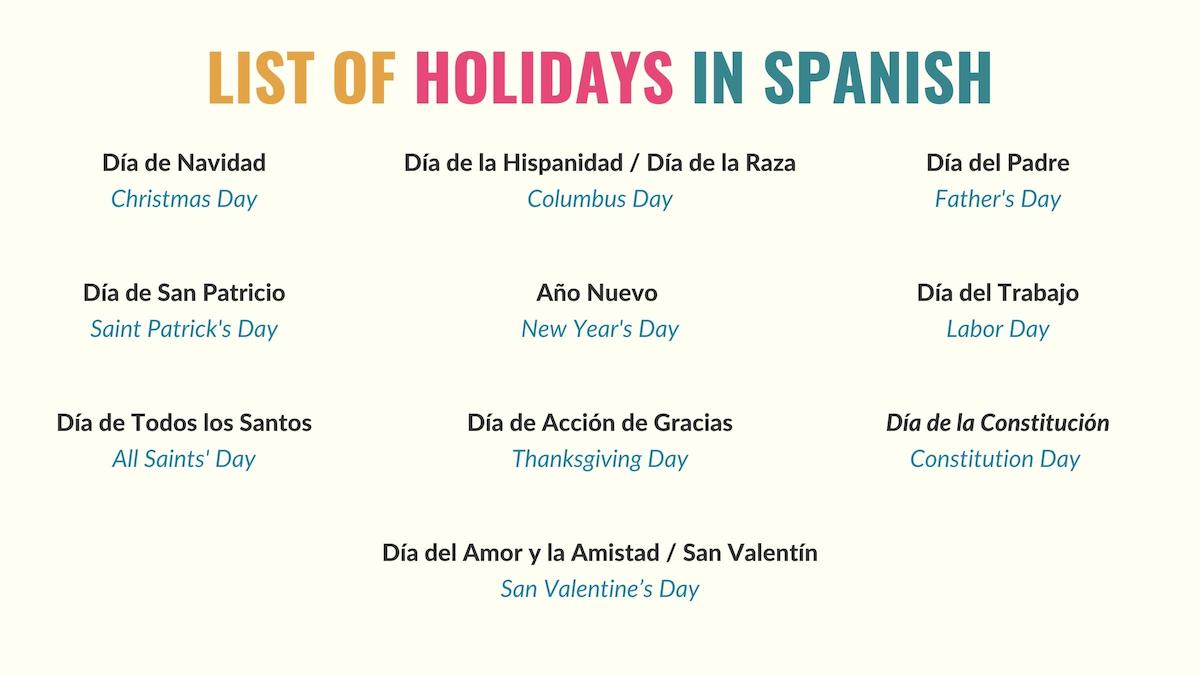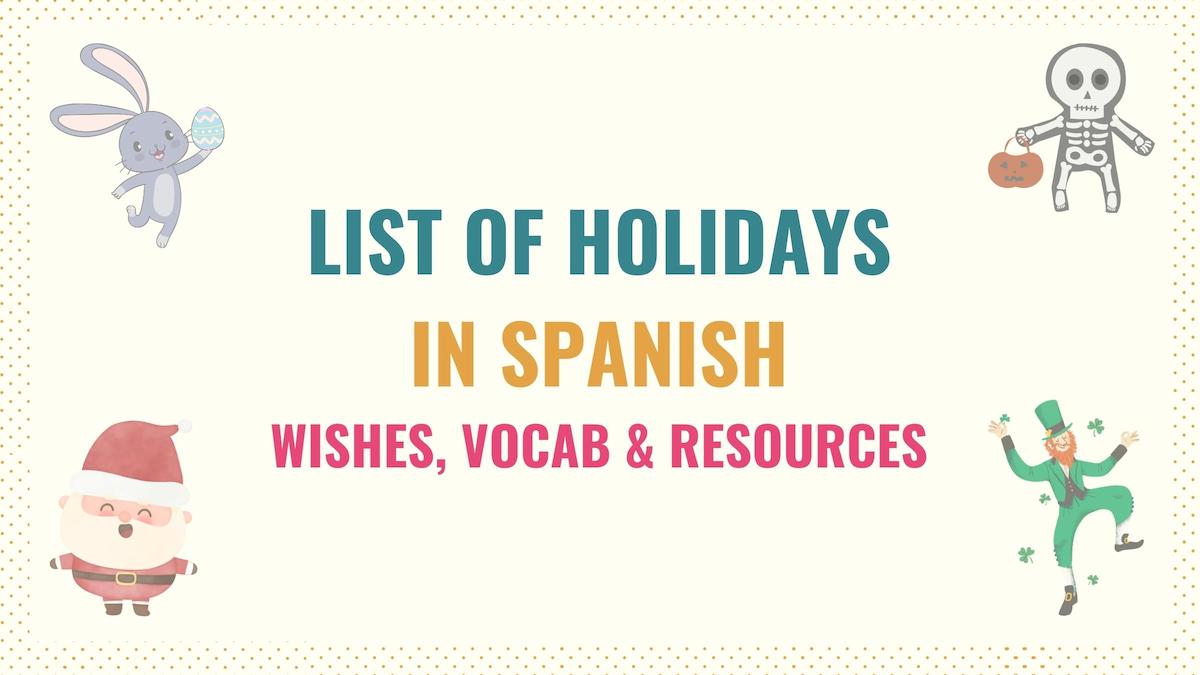Whether you’re celebrating with locals or want to share holiday greetings, knowing holidays in Spanish can help you enrich your interactions. With that in mind, in this guide, you’ll find common vocabulary and expressions you can use during the holiday season and some additional resources to improve your Spanish.
Take Note: Día feriado, festividades or fiestas is how you say holiday(s) in Spanish. ‘Día feriado’ refers to public holidays such as Independence Day or Labor Day. On the other hand, ‘festividad’ and ‘fiesta’ refer to celebrations such as Christmas or New Year’s.
List of Holidays in Spanish

Here is a list of common world-known holidays. Beware that each Spanish-speaking country has unique celebrations, so this list is not exhaustive. Additionally, some of these festivities may not be celebrated in Hispanic countries (for example, Día de Acción de Gracias).
- Año Nuevo: New Year’s Day
- Día de Acción de Gracias: Thanksgiving Day
- Día del Amor y la Amistad / San Valentín: San Valentine’s Day
- Día de la Constitución: Constitution Day
- Día de la Hispanidad / Día de la Raza: Columbus Day
- Día de la Independencia: Independence Day
- Día de la Madre: Mother’s Day
- Día de los Reyes Magos: Epiphany (Three Kings’ Day)
- Día de los Santos Inocentes: April Fool’s Day
- Día de Muertos: Day of the Dead
- Día de Navidad: Christmas Day
- Día de San Patricio: Saint Patrick’s Day
- Día de Todos los Santos: All Saints’ Day
- Día del Padre: Father’s Day
- Día del Trabajo: Labor Day
- Halloween / Día de las Brujas: Halloween
- Jueves Santo: Holy Thursday
- Nochebuena: Christmas Eve
- Pascua: Easter
- Semana Santa: Holy Week
- Viernes Santo: Good Friday
La Navidad es mi fiesta favorita.
Christmas is my favorite holiday.
¿Qué hicieron el Día de la Madre?
What did you guys do on Mother’s Day?
Celebramos el Día de Acción de Gracias con la familia.
We celebrated Thanksgiving with our family.
El 12 de octubre es el Día de la Raza.
October 12 is Columbus Day.
Take Note: The name of a holiday in Spanish is considered a proper noun. As a result, holidays are always capitalized in Spanish.
How to Say Happy Holiday in Spanish
One of the most common ways to wish people a happy holiday is by using the following structure:
Feliz / Felices + Holiday Name
¡Feliz Día del Padre!
Happy Fathers’ Day!
¡Felices Pascuas, niños!
Happy Easter, kids!
If you want to know greetings for specific holidays and celebrations, you should check the following resources:
- How to Say Merry Christmas in Spanish
- Words & Phrases for Valentine’s Day
- Different Ways to Say Happy New Year
- How to Wish a Happy Birthday in Spanish
Additional Resources to Learn Spanish
Although it’s not a happy celebration, you may also want to learn how to express your condolences in Spanish. Also, the word feliz is not only used as a holiday greeting. In fact, you can use this word, along with other expressions, to congratulate people for different events.
Like in English, in Spanish, holidays are capitalized. However, the capitalization rules in Spanish sometimes differ from English, so make sure to understand them. Finally, you should learn some basic adjectives to help you describe your holidays more precisely.
Download the Holidays in Spanish PDF
Remembering how to say all of the different holidays in Spanish can be tricky. I’ve created a short, free PDF cheat sheet you can download with all of the major holidays along with their translations.

